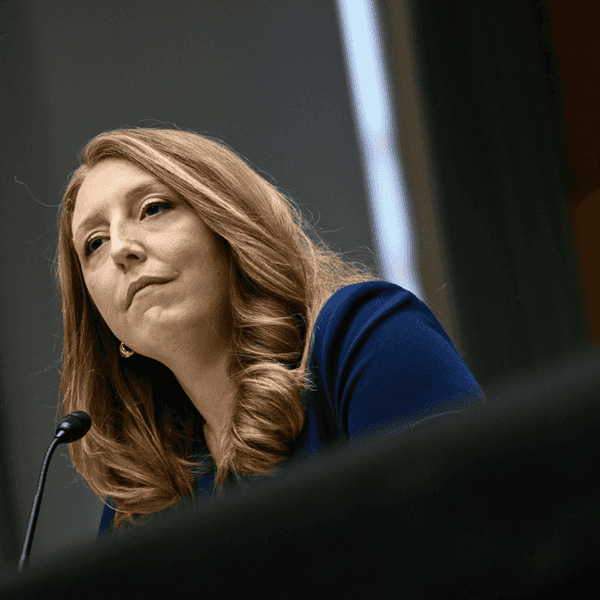
Reprinted with permission from Media Matters.
Special counsel Robert Mueller on Wednesday morning gave his first public statement on his office’s investigation into Russian interference in the 2016 presidential election. His most newsworthy comments during the nine minutes of remarks at the Justice Department included that his team would have publicly cleared President Donald Trump of obstruction of justice if they had been confident he did not commit a crime, that he was prohibited by Justice Department policy from charging the president with a crime, and that the Constitution provides for a different remedy for crimes committed by a sitting president (namely impeachment). All these points can be found — with little variation — within his 400-plus page report, which the department released last month.
But Mueller’s words nonetheless carry grave significance. His statement followed a sustained disinformation effort by Trump, Attorney General William Barr, and the president’s propagandists at Fox News and elsewhere meant to mislead the public about Mueller’s conclusions. Too often, mainstream journalists bought into that dishonest spin, thereby promoting an inaccurate narrative that seemingly spurred Mueller to speak out publicly.
By the time Mueller submitted his report to the Justice Department in March, Trump and his allies in the right-wing media had spent nearly two years working hand in hand to shape the communications battlefield. With declarations of “NO COLLUSION” and “WITCH HUNT” from the president and invocations of the “Mueller Crime Family” and the special counsel’s purported corruption from Fox host Sean Hannity and his coterie, this sinister effort undermined the legitimacy of the investigation among Trump’s base.
Fox’s reaction was unsurprising: The network has long served as the communications arm of the Republican Party, and it has spent the last few years fusing with the Trump administration and becoming an instrument of state propaganda. But it has been more unnerving to watch the mainstream press grapple unsuccessfully with Mueller’s actual conclusions and let the Trump administration’s spin set the narrative.
Trump’s ability to dominate the news cycle is in part, a function of his weak and supine opposition. But it’s also that as an industry we’ve learned nothing.
— Adam Serwer🍝 (@AdamSerwer) May 29, 2019
Recall how major newspapers handled the letter Barr sent to Congress on March 24 summarizing what the attorney general termed the “principal conclusions” of the report Mueller submitted a few days earlier.
There was no reason for journalists to accept Barr’s rosy assessment at face value — Trump had long publicly griped that his previous attorney general, Jeff Sessions, had failed to act in his personal interest, making it likely that Barr had been selected at least in part because he was willing to do so. His letter was a transparent attempt to spin the report in Trump’s favor while it was still hidden from the public.
And yet, the next morning some of the nation’s biggest newspapers had splashed Barr’s statements across their front pages as evidence that Mueller had exonerated Trump and his associates:
So many newspapers played themselves. So many editors whiffed. pic.twitter.com/kiWpLDU7LY
— Greg Greene (@ggreeneva) March 28, 2019
“For President Trump, it may have been the best day of his tenure so far,” The New York Times’ Peter Baker reported. “The darkest, most ominous cloud hanging over his presidency was all but lifted on Sunday with the release of the special counsel’s conclusions, which undercut the threat of impeachment and provided him with a powerful boost for the final 22 months of his term.”
Over the next few weeks, that phony narrative circulated, bolstered by Trump’s own false statements, the willingness of major news outlets to parrot those falsehoods, and Fox’s vicious attacks on the rest of the press for their prior reports on Russia.
On the morning of April 18, Barr held a press conference to discuss Mueller’s report, which was scheduled for release later that day. This was, again, a clear effort to spin the press. And again, many in the press fell for it, echoing his obvious false claims.
Then the report came out and the Trump-Barr story collapsed. The report diverged from Barr’s description in several key ways that made it much more damning for the president than the attorney general had let on. But by the time reporters had access to Mueller’s actual conclusions, the damage had already been done.
“What Barr did shaped the debate for the half of the country that mattered,” The Washington Post’s Aaron Blake concluded after reviewing the discrepancies between Mueller’s report and Barr’s statements. “It gave Trump’s supporters a built-in narrative that, though misleading, has taken hold.”
Mueller himself was reportedly disturbed by Barr’s letter and the way it was subsequently interpreted by the press. In a March 27 letter to Barr, he wrote that Barr’s summary “did not fully capture the context, nature, and substance” of the investigation. In a subsequent phone call, he reportedly told the attorney general “he was concerned that media coverage of the obstruction probe was misguided and creating public misunderstandings about the office’s work.”
The weeks since have done little to assuage such concerns, as major media outlets continue to view Mueller’s report in large part through the false statements of the president and his allies.
That’s the context in which Mueller stepped up to the lectern this morning. Minutes after he stepped down, Trump and his allies started lying, and the media spin cycle began again.








